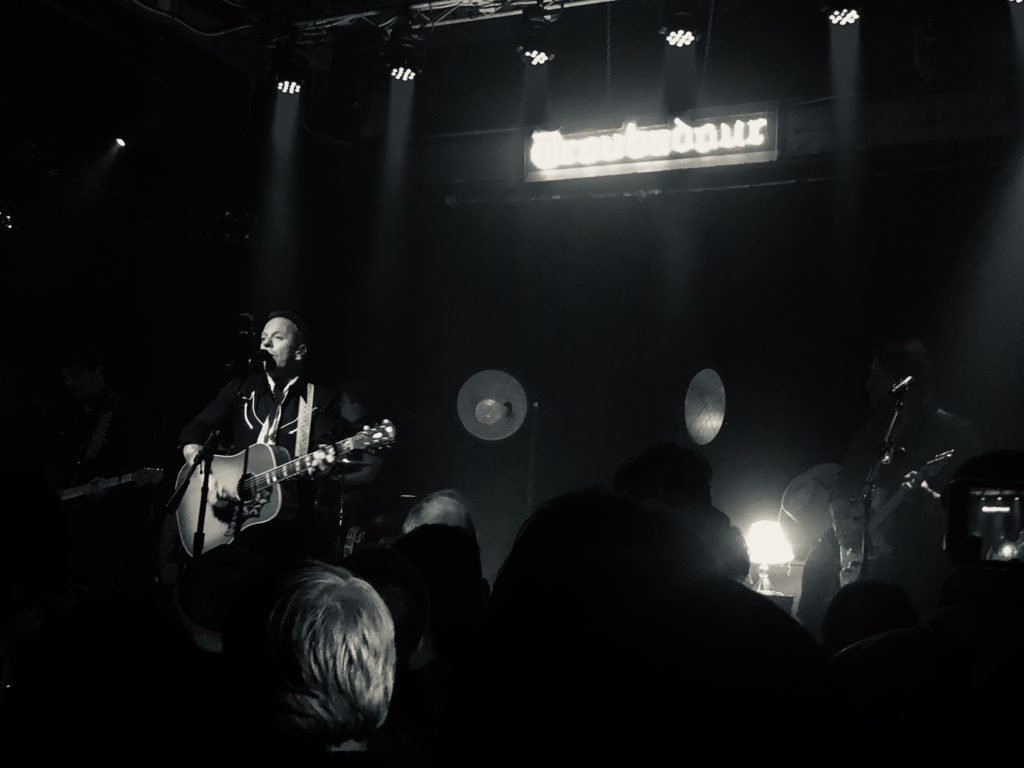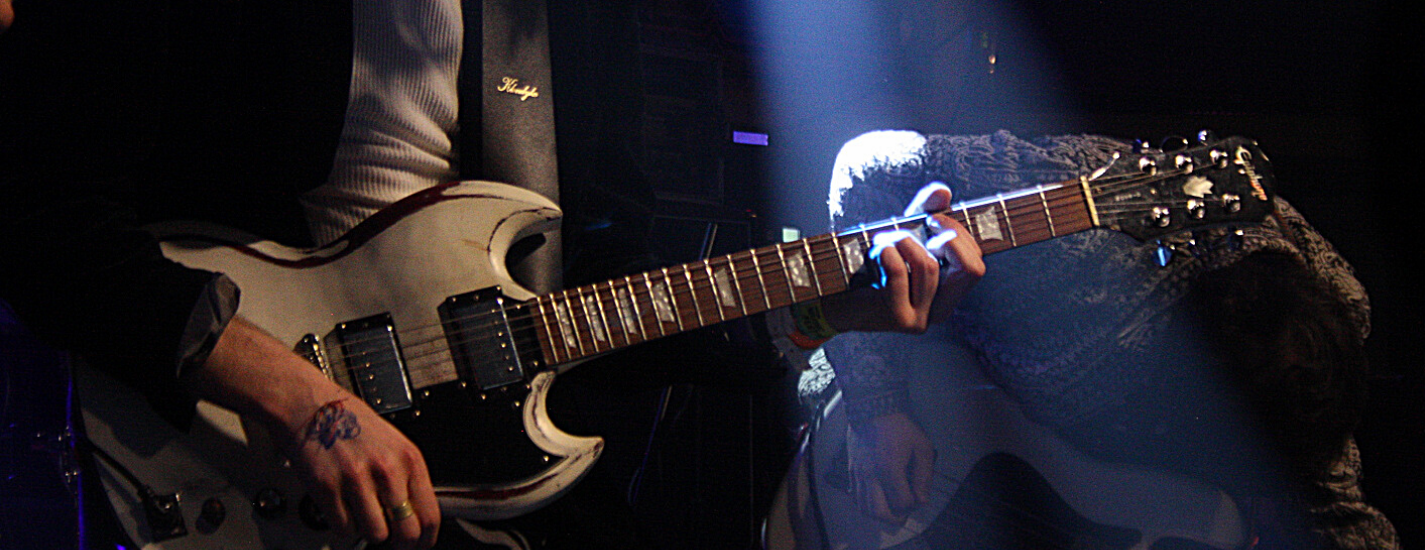Arts funding in the U.S. is bleak in comparison to other countries. During SXSW, international showcases abound from the U.K., Australia, Canada, Japan, Ireland, Germany, Spain, Italy, and even China have gotten into the game. American bands, on the other hand, are left funding their own international and domestic tours with little help from our government.
While COVID fundraising campaigns from organizations like the Grammy Foundation’s MusiCares launched to rightly support musicians and artists, independent venues were left flailing in the wind, not knowing if they’ll survive the financial hardship caused by the COVID lockdown on gatherings that will continue through the end of 2020 and possibly into the fall of 2021.
Meanwhile, in the U.K., home to the annual Independent Venues Week (“funded by the Arts Council England, Wales and Creative Scotland as well as the wider music industry and brands globally”) and related campaigns to preserve the “backbone of British music,” Music Venue Trust (MVT) launched the #SaveOurVenues campaign. The beneficiaries of the campaign are the 556 grassroots music venues throughout the UK that “are at imminent risk of being closed permanently.” The campaign is “aimed at artists, music fans, and the wider music industry and aims to raise both money and awareness.”
According to the Crowdfunder campaign site collecting online donations, as of this posting #SaveOurVenues has raised £1.269 million, having almost met their goal of £1.5 million. In addition to individual fan donations, big money pledges have come in from Beggars Group, Amazon Music/The BPI, The Mayor of London, Sony Music SJM, Kilimanjaro Live, and DHP.

Kiefer Sutherland told as many stories as sang songs the night he performed at the Troubadour. Who knew he was a competitive cowboy (roper) in the USTRC team roping circuit?
American Independent Venues Could Be Lost For Good
When news hit this week that the Troubadour was in threat of closure, the further awareness of how our precious churches of music, escapism, and joy could be lost forever was a real gut punch. In California, venues are considered to be in the Phase 4 category within the state’s current plan to open up and ease restrictions. Not only could that take until next year to reach that phase, but clubs could be restricted to a much smaller level of capacity.
As the Troubadour’s general manager, Christine Karayan, (her father, Ed Karayan, is the sole owner and caretaker of both the club and the building since his former business partner Weston died in 1999) told the Los Angeles Times, “That means the middle to the end of next year to potentially open, and maybe a 25% cap” on crowd size. I can’t foresee being able to ride this out like that.” She continues sharing about the realistic future of the club, “The more I think about it, it’s just completely futile. At least a big seated venue has space where they can keep people apart. But I don’t know how that works for a general admission venue. Are you going to stop them from using the restroom?”
Even though we lost historical landmarks like CBGB’s years ago, and most recently, Slim’s in San Francisco (where I still hold fond memories of seeing Garbage, Failure, Catherine Wheel, and The Soup Dragons, just to name a few) in March, which the club’s owner, Boz Skaggs, stated the closure had nothing to do with the current situation, we need to keep the remaining venue treasures alive in this country.
A New U.S.-Based Venue Advocacy Organization is Born
As we’ve learned from past crises and certainly the one we’re in now, necessity is the mother f’er of invention. Thankfully the U.S. finally has our own organization, The National Association of Independent Venues, or NIVA.
As part of the U.S. contingency of Independent Venue Week, on April 17 NIVA launched. Within three days 450 venues in 43 states had joined, including 9:30 Club in D.C., First Avenue in Minneapolis, Chicago Independent Venue League, World Cafe Live in Philadelphia, Pabst Theater Group in Milwaukee, Red River Cultural District in Austin, and Exit/In in Nashville. It costs the venues nothing to join, and since the launch membership has grown to over 1,000 venues covering all 50 states.
“Until now, independent venues and promoters have inherently been islands unto themselves, fighting fiercely in brutal, individual marketplaces,” states the NIVA press release. “But the pandemic has brought a crashing halt to business operations of small and mid-sized venues across the country and threatens their existence.”
NIVA’s #SaveOurVenues “Take Action” campaign is focused on lobbying for government aid. By clicking the link to contact our local representatives, the following letter will be sent (you can also add to or customize your own letter):
I’m writing to you today as your constituent, community member, and a music lover. For all those reasons, I ask you to support the National Independent Venue Association’s (NIVA) effort in Washington to protect independent venues and promoters in this time of existential crisis. Please sign on to the Cornyn/Carper letter in the Senate that supports federal assistance for independent venues.
Every day in conversations, on the news, and especially in our social media feeds we see wildly hyperbolic messaging. But the reality of this one is that if concerts don’t resume in 2020, 90% of independent venues across America will most likely not open again. Ever. Including the venues in our community.
Of course this is terrible for music lovers but this affects so many more angles. Independent music venues are economic multipliers, community builders, and beloved institutions. A Chicago study estimated that $1 spent at a small venue resulted in $12 of economic activities for neighboring restaurants, hotels and retail shops – and we believe that level of financial contribution is consistent in cities and towns across America. What would our communities look like without them? We must ensure their survival.
Thank you for your extremely hard work for our state and our country in these absolutely uncharted times.”
Short-term Wins and Long-term Gains to Come
Some good news to report: the Troubadour’s GoFundMe campaign has exceeded their $50K goal raising over $73,000 as of this posting. Another beloved indie club in L.A., the Bootleg Theater, has raised their their GoFundMe goal to $45K after contributions exceeded the first one, reaching over $29,000 donated by over 550 people.
But the work and focus has only begun. In addition to lobbying our government representatives to support and sign the Cornyn/Carper letter to provide economic relief for indie venues, one can hope that U.S. major labels will also kick in, given it’s in their best interest to do so. Thus far corporate donations have included See Tickets and Lyte, which have provided much needed funding. Given Amazon U.K.’s contribution to the UK indie venue effort, let’s hope they do the same here in the states along with Google, Microsoft, Spotify, and Apple.
Our world is experiencing an unprecedented state of fear, anxiety and hardship caused by this pandemic. Music has gotten us through some rough periods in history and is essential for human happiness and healing. These venues, especially iconoclastic clubs like the Troubadour with deep history, are hallowed ground and historical monuments. If they’re forced to close we lose a part of our humanity, our culture, and our happiness that’s essential to living a fulfilled life. And we’ve demolished the potential for future generations of musicians and artists and venue operators.
Now is America’s time to value and show appreciation for our local clubs that we may have taken for granted by moving from apathy to action. Now is the time to #SaveOurVenues.







